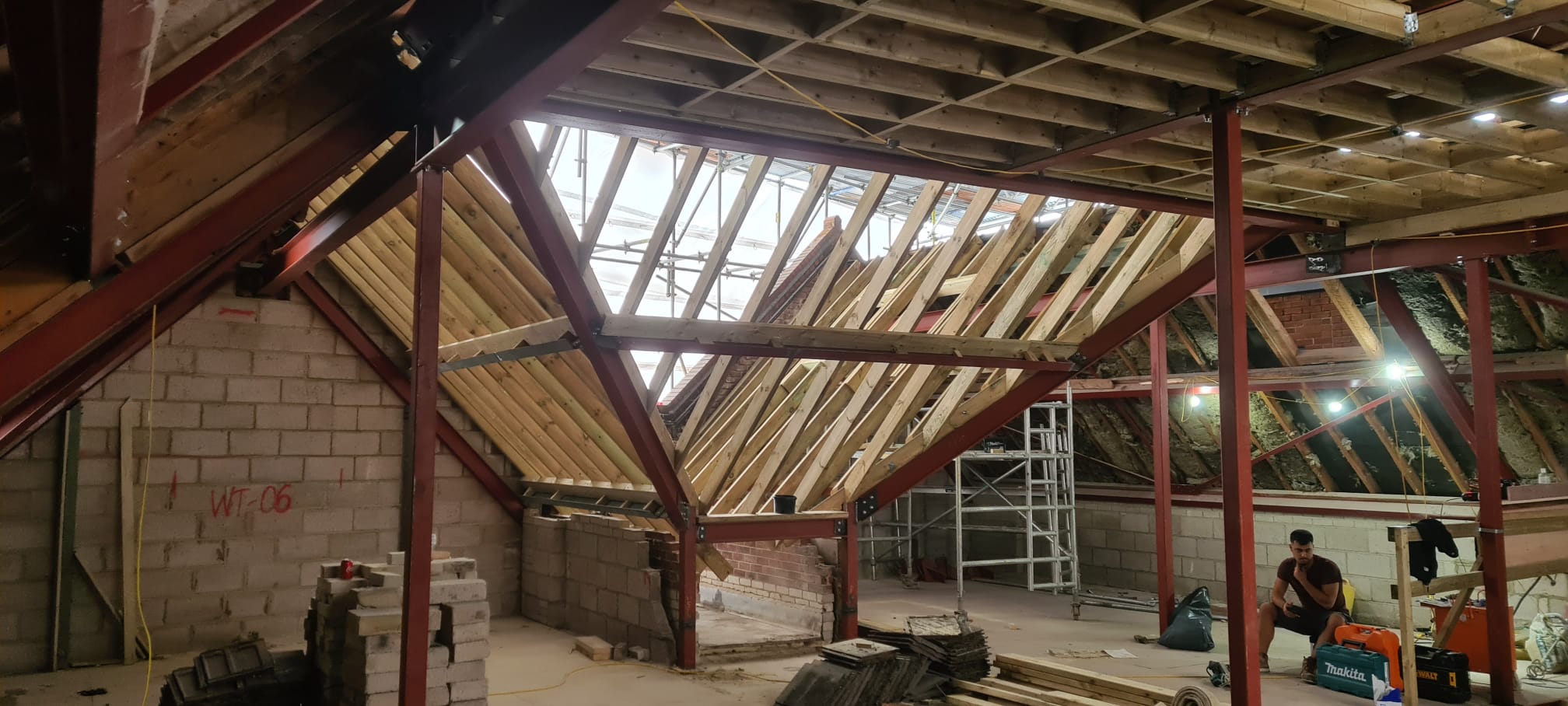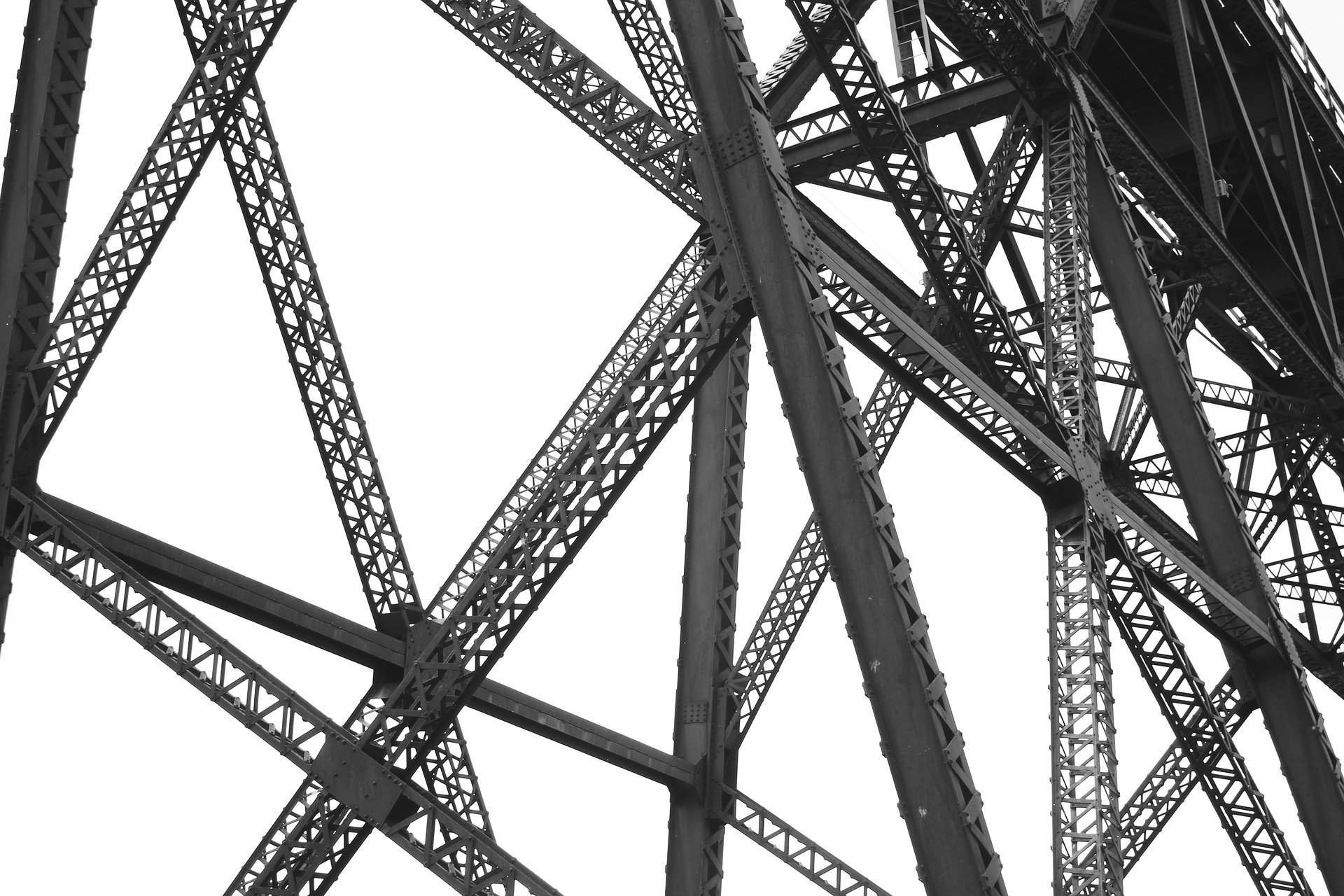Discover the common projects that use structural steel. From bridges to warehouses, structural steel can enhance your building's strength, durability, and sustainability.
Bridges and Walkways
Structural steel is widely used for bridges and walkway projects across the UK due to its exceptional strength, versatility, durability, and cost-effectiveness. These characteristics make structural steel an ideal material for both large-scale infrastructure and pedestrian access solutions.
Structural steel components can be prefabricated off-site in controlled environments, allowing them to be manufactured and assembled quickly and accurately on-site. This minimises the disruption to the surrounding areas, traffic, or infrastructure, which is particularly important for walkway projects.
In terms of sustainability, steel is 100% recyclable, which aligns with the UK’s sustainable construction practices and circular economy principles. Many UK infrastructure projects aim to reduce their carbon footprint, and structural steel plays a key role in achieving this target.
Farm Buildings and Barns
One major advantage of using structural steel for barn projects is its excellent strength-to-weight ratio. This ratio means that large, wide-span buildings can be constructed without internal support columns. This is ideal for barns, machinery storage, livestock housing, and grain sheds, where open, uninterrupted space is essential.

In terms of cost-effectiveness, steel buildings are often more economical than traditional timber or masonry options since they need less maintenance, are resistant to pests such as termites, and they are non-combustible.
Steel is also extremely versatile, allowing farmers to easily modify or extend their buildings as they please. Structural steel buildings can be customised to accommodate solar panels, automated ventilation, or internal partitioning based on your agricultural needs.
Industrial Units and Warehouses
Structural steel is widely used for industrial units and warehouses across the UK due to its strength and flexibility. These types of buildings require large, open spaces that can accommodate heavy machinery, high shelving, and constant activity, which are needs that structural steel is designed to meet.
Structural steel, when it's protected with the appropriate coatings or galvanisation, can resist corrosion and perform well in a variety of industrial environments. Structural steel is ideal for settings where the temperature frequently changes, or where moisture or chemicals may be present. Steel's resistance to fire and ability to withstand heavy loads also enhance its suitability for these buildings.
Home Extensions and Frames
Structural steel is often used in home extensions and framing projects due to its strength, versatility, and ability to support modern architectural designs. Structural steel's strength-to-size ratio is especially useful when creating open-plan layouts or connecting existing structures with new spaces, such as loft conversions.
.jpg)
Structural steel components can be fabricated off-site in controlled factory settings and delivered ready for assembly. This reduces your on-site labour costs and speeds up the construction process, which is important when you're integrating new extensions into older homes.
Unlike timber, structural steel doesn't warp, shrink, or suffer from rot and pests. When it's properly treated, steel structures are more resistant to corrosion and provide long-term stability. This reliability gives homeowners peace of mind and reduces their maintenance costs in the long run.
We provide steel fabrication services that are customised to meet your project's specific needs. We aim to deliver strong, durable steel structures that you can rely on.


